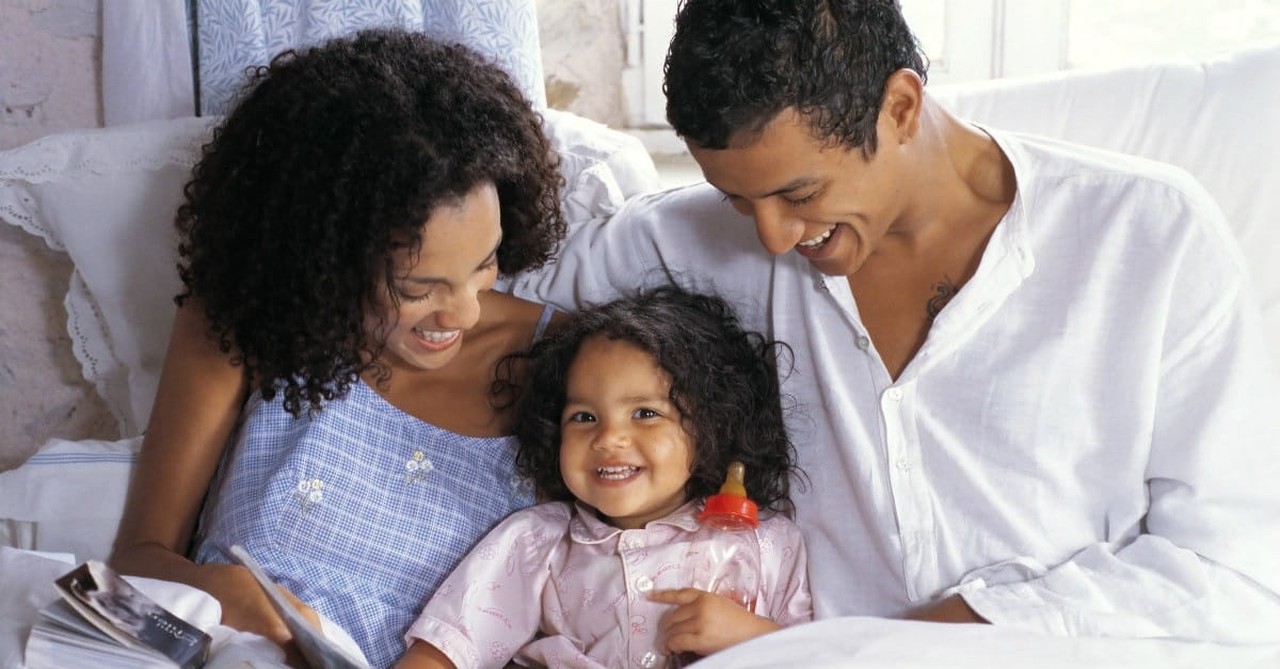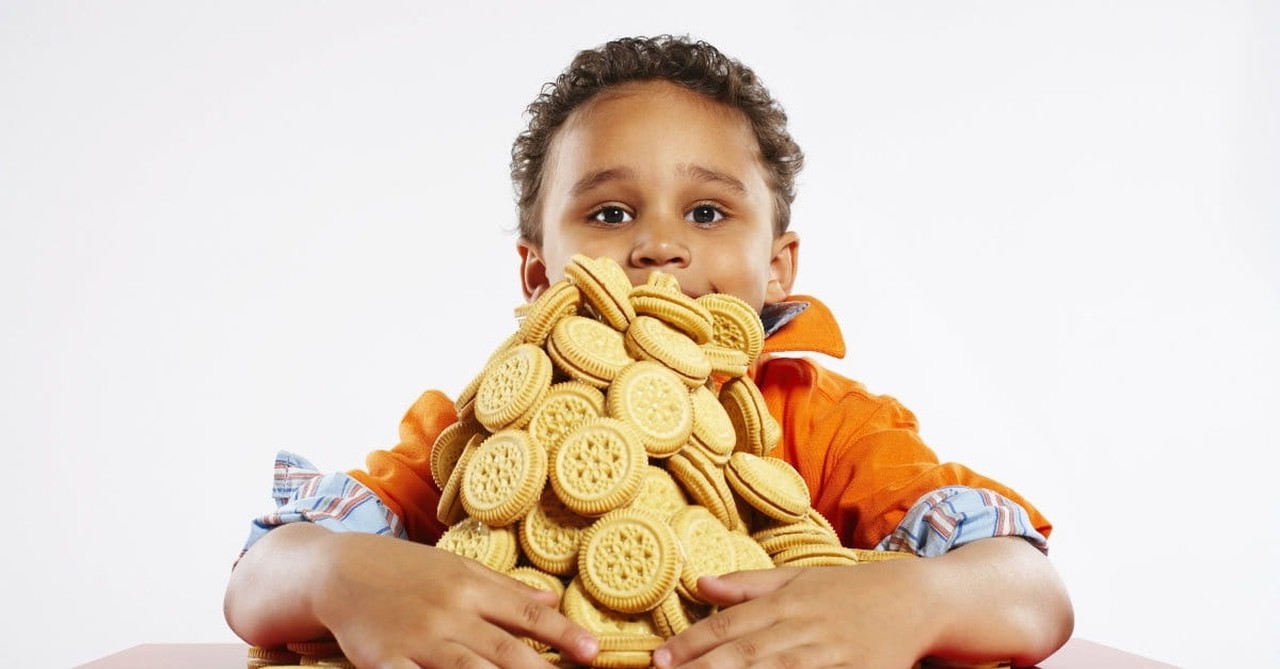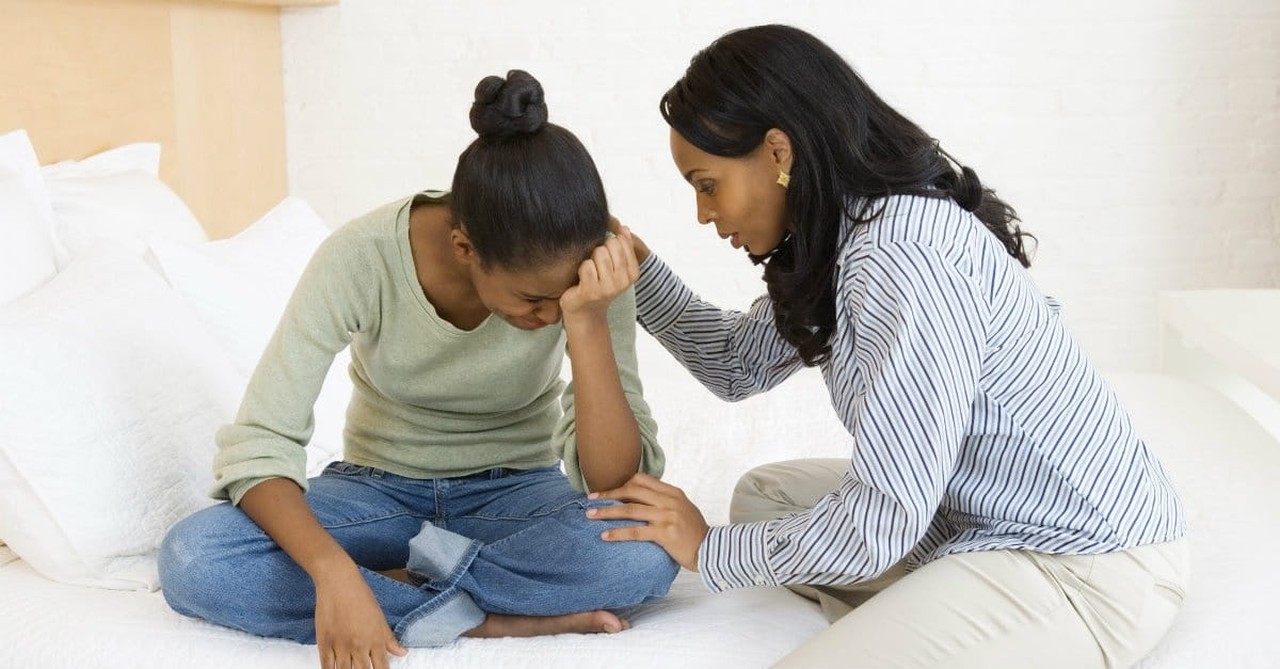10 Lies the World Will Tell You about Parenting

Any parent who's been parenting for more than oh… a day, can tell you that they get plenty of advice on how to raise their kids. Some is helpful. Some is not so helpful. And some is just plain opinionated. Still, it comes from a variety of sources at different parenting moments in our lives.
And while it may be welcomed or unwelcomed, as Christians we need to consider the worldview that these advisors live under. If they are not believers, their advice may just be what they’ve always done or always been told. When the truth is, we have sound parenting advice available to us by simply opening a book—the Bible.
Be wary of advice from people that don’t value the same things you hope your children will someday value. It’s easy to be swayed when the whole world is telling you the same lie about parenting, like these:
Photo credit: ©Thinkstock/monkeybusinessimages
1. It takes a village.

1. It takes a village.
SLIDE 1 OF 10
Also known as the politically correct approach to parenting, this implies that the responsibility of child rearing should be shared among everyone the child comes in contact with. While it’s true that exposing children to a wider influence can help them grow into a more well-rounded member of society, it shouldn’t be something we simply sit back and watch happen. Not everyone should have an equal say, or equal opportunity to speak into our children’s lives just because they happen to walk into it.
The truth? It’s the sole responsibility of the parents to decide the types of people who would be the best influence and supporters in a child’s life. Don’t actively give up your role to just anyone due to the pressure that others put on you. Don’t forget: every village has a village idiot as well.
“Children are a gift from the Lord; they are a reward from him.” (Psalm 127:3)
Photo credit: ©Thinkstock/Wavebreakmedia Ltd
2. Build their self-esteem.

2. Build their self-esteem.
SLIDE 2 OF 10
In our heart of hearts, I think all parents with common sense knew a day would come that this theory would backfire. While I fully believe in building our children up, there is a natural way to do so that doesn’t constantly throw insincere compliments their way in hopes of not harming their fragile egos.
The truth? Most kids today need to toughen up. It’s good for them to fail (and learn how to regroup afterwards). Constantly telling your child how wonderful they are creates nothing but overinflated (and undeserved) egos and entitled attitudes towards life. Their self-esteem should come from their exploration of their natural gifts as well as from their failures that they overcome.
“Because of the privilege and authority God has given me, I give each of you this warning: Don’t think you are better than you really are. Be honest in your evaluation of yourselves, measuring yourselves by the faith God has given us.” (Romans 12:3)
Photo credit: ©Thinkstock/Image Source White
3. They will have sex no matter what you do.

3. They will have sex no matter what you do.
SLIDE 3 OF 10
Our children are their own people, and of course will make their own decisions in life. But encouraging them to take risks they aren’t ready for simply because everyone is telling us to is walking away from our responsibility as parents. Handing out birth control as if it’s as commonplace as giving them gas money puts sex on the same level of acceptability as any other commonplace action in their lives.
The truth? You should teach your child that sex is not commonplace and insignificant. It should be something they approach with great reverence, within the safety and respect of a marriage. That mindset starts at home.
“Don’t you realize that your body is the temple of the Holy Spirit, who lives in you and was given to you by God? You do not belong to yourself, for God bought you with a high price. So you must honor God with your body.” (1 Corinthians 6:19-20)
Photo credit: ©Thinkstock/Martinan
4. Don't worry about their potty mouth.

4. Don't worry about their potty mouth.
SLIDE 4 OF 10
There once was a teenager who cussed like a sailor. Why? Because no one reprimanded them. It was a thrill, in fact, to toss a few out there and see how adults reacted. Most would bristle, but not say a word. And you know what? That made it even more fun. Allowing your child to use foul language is no better than letting them physically shove someone. The abrasiveness can feel the same.
The truth? The world was created by God simply speaking it into existence. Words have incredible power and should be treated as such. Once foul words become comfortable to you, it’s very difficult to get rid of them in your life. Your child’s potty mouth is something to worry about. It won’t get better on its own. It’s your job to close that trap.
“The tongue can bring death or life; those who love to talk will reap the consequences.” (Proverbs 18:21)
Photo credit: ©Thinkstock/SIphotography
5. They'll grow out of it.

5. They'll grow out of it.
SLIDE 5 OF 10
This may be the most overused advice on the planet. The truth is that children behave as they are allowed to behave. Excusing bad behavior based on their gender (boys will be boys/girls rule), or immaturity level is no excuse at all.
The truth? Even a toddler can learn to say please and thank you. Teach your children to behave and correct them immediately when you discover they have overstepped. It’s our duty as parents to draw the acceptable lines and teach them to walk within the boundaries that God has given us all.
“Direct your children onto the right path, and when they are older, they will not leave it.” (Proverbs 22:6)
Photo credit: ©Thinkstock
6. Be your child's friend.

6. Be your child's friend.
SLIDE 6 OF 10
While you may not get this specific advice verbally, you’ll find lots of parents who are proud of the fact that their children consider them one of their besties. And while all of us hope to have our children on our list of best friends at some point in life, it shouldn’t be a goal we attain while they are in our home.
The truth? In a society that dresses like our children (graphic tees, anyone?), talks like our children (catch me outside), and socializes like our children (via social media), someone needs to stand up and be the adult.
“In the same way, you who are younger must accept the authority of the elders. And all of you, dress yourselves in humility as you relate to one another, for “God opposes the proud but gives grace to the humble.” (1 Peter 5:5)
Photo credit: ©Thinkstock/Jupiterimages
7. Let them fight it out.

7. Let them fight it out.
SLIDE 7 OF 10
This theory seems to make sense. If children can’t get along, we should just let them work it out on their own, right? Stepping in only escalates the conflict and makes them feel like we are choosing sides. Except for the fact that they are children and have absolutely no experience on how to resolve conflict naturally.
The truth? This is a skill that has to be taught. Monitoring your children’s encounters and correcting them when they are wrong is the only way to help them learn how to handle situations that will arise in the future. Not offering correction early in life will lead them to struggle with being corrected later in life. Don’t be afraid to take sides. Sometimes one child is in the wrong and they can learn from that too.
“Fathers, do not provoke your children to anger by the way you treat them. Rather, bring them up with the discipline and instruction that comes from the Lord.” (Ephesians 6:4)
Photo credit: ©Thinkstock/gruffi
8. Popularity matters.

8. Popularity matters.
SLIDE 8 OF 10
Studies have shown that the most popular kids in your child’s school are most likely the very same children known for bullying. Yes, their bullying is more subtle. But, it’s how they get to the top of the playground ladder. Some parents are so concerned with having their child in the right social circle that they will join in the bullying as well in order to position their children in what they believe is the best social situation.
The truth? In God’s view the least become the greatest and the greatest become the least. We should encourage our children to value more important things that will help them to touch other’s lives such as kindness, integrity, and empathy. It will take them much further in life and likely lead them to true friendships that last.
“Walk with the wise and become wise; associate with fools and get in trouble.” (Proverbs 13:20)
Photo credit: ©Thinkstock/Digital Vision.
9. Too many rules and they'll rebel.

9. Too many rules and they'll rebel.
SLIDE 9 OF 10
We all remember those adults in our lives who gave us the hardest time, making us walk the narrow road. More than likely, these are the same people that you look back on now and realize were the most positive influences. Studies have shown that children who have no direction from parents will act out in the hopes that bad behavior will result in someone reining them in and therefore showing how much they are cared for.
The truth? Being lax with your children about rules for the simple fact that you are afraid they will rebel is a cop out. It’s your job to lay down the boundaries that are safe for them to navigate within, just as God has laid out boundaries for you. Set the rules you believe your children need to become successful in life and don’t look back.
“Repeat them again and again to your children. Talk about them when you are at home and when you are on the road, when you are going to bed and when you are getting up.” (Deuteronomy 6:7)
Photo credit: ©Thinkstock/vadimguzhva
10. Don't baby them.

10. Don't baby them.
SLIDE 10 OF 10
While there is some merit to this at a certain age, this advice is often given—hold onto your chair—while they are babies. Everyone from your doctor to your mother-in-law will suggest that holding your child too much or showering them with too much attention when they are young is a mistake.
The truth? Parents are there to take care of their children. Babies who are held are more social and learn to accept and love others more easily. Younger children who are well cared for learn that their family is a safe place to fall, and a place that they will always be taken care of in a way that others won’t. Being able to rely on your family like no other is what builds strong bonds in families. While you have to make sure you don’t take it too far and keep them from growing into well-functioning adults, children should have lots of memories of their parents taking good care of them. Let’s face it, there are times in life where these memories are the best things we have to hold onto.
“Give, and you will receive. Your gift will return to you in full—pressed down, shaken together to make room for more, running over, and poured into your lap. The amount you give will determine the amount you get back.” (Luke 6:38)
Laura Polk is a writer, speaker, and textile designer residing in North Carolina with her three children. Since becoming a single mom, her passion to minister to this group has led her to encourage successful single mom living through The Christian Single Mom on Facebook. Follow her journey through her blog or get a glimpse into her quirky thoughts and inspirations for design and writing on Pinterest.
Photo credit: ©Thinkstock/monkeybusinessimages
Originally published March 31, 2017.









